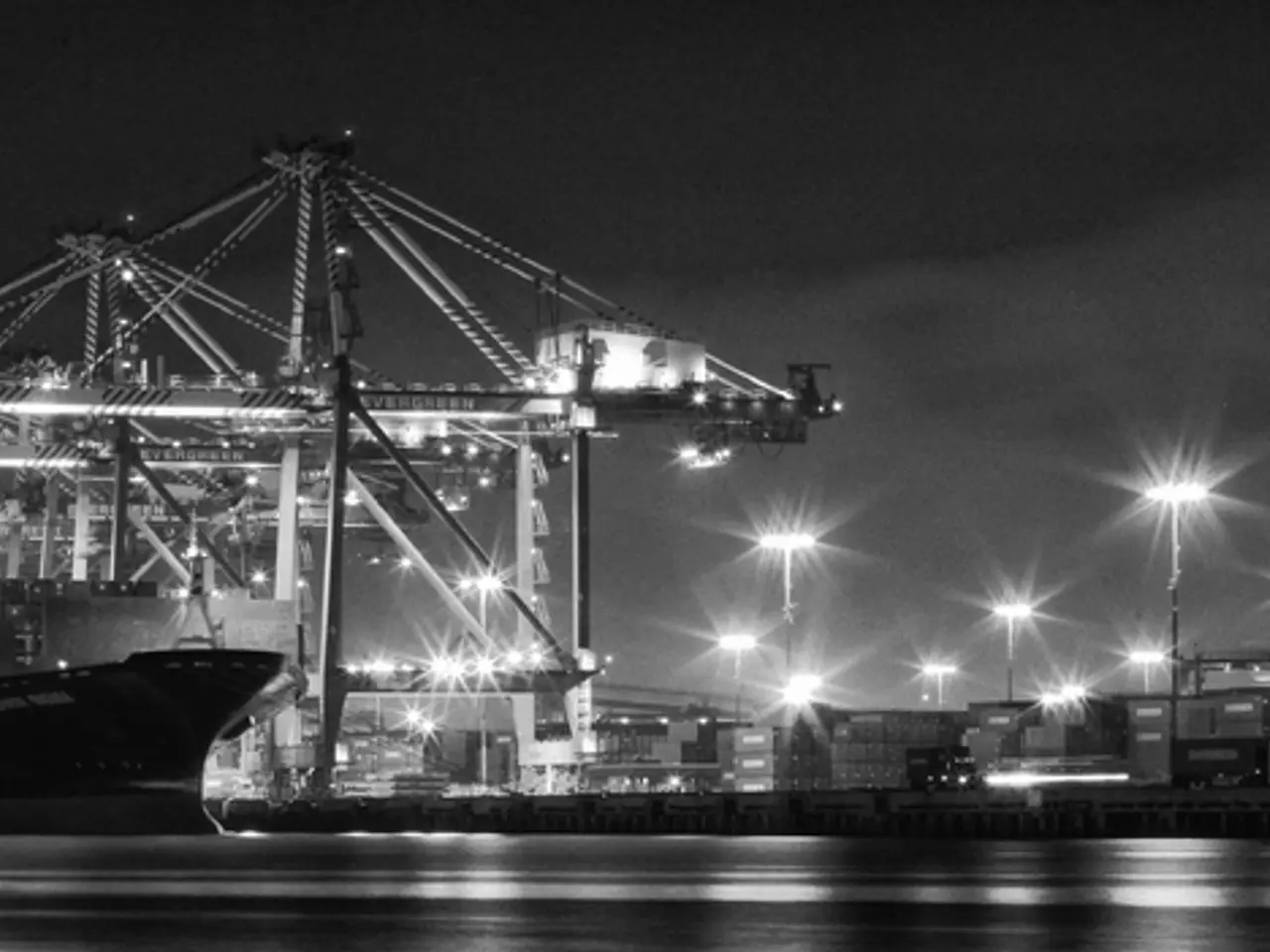Berlin experiences construction delays with the new frigate F126 project
The construction of the German Navy's F126 frigates, a significant naval modernization effort, has faced setbacks due to delays and potential cost increases. Here's an overview of the current situation:
## Delayed Construction Timeline
The delays in the F126 project are primarily attributed to technical challenges, particularly software issues at Damen Naval Shipbuilding. As a result, the delivery timeline for the F126 frigates has been pushed back to 2030 or later, marking a significant deviation from the initial expectations of handing over the first frigate to the navy in 2028 [1][2]. Despite these challenges, construction on the first frigate has started, as evidenced by a steel cutting ceremony at the Wolgaster Peene-Werft at the end of 2023 [3].
## Potential Cost Increases
The F126 project, valued at nearly €9 billion (approximately $10.5 billion), is one of Germany's largest naval modernization efforts [2]. While specific cost increases due to the delays are not yet known, extended timelines and potential revisions to contracts often lead to increased project costs.
## Impact on the German Navy
The F126 program is essential for modernizing the German Navy, aiming to replace aging anti-submarine frigates with new multipurpose combat ships [1][2]. The delays could impair the navy's operational readiness by extending the lifespan of older vessels and potentially affecting its ability to fulfill its defense commitments [1]. Delayed modernization could also impact Germany's strategic capabilities and its ability to participate effectively in international naval operations.
## Government Intervention
Recent reports suggest that the German Ministry of Defense has informed the Bundestag about these significant delays and a financial crisis at Damen Naval. In response, the Dutch parliament has approved a confidential bridge loan for a shipyard, believed to be Damen Naval, to help it navigate through this challenging period [4]. The federal government is also planning to carry out a comprehensive contract adjustment for the F126 frigate project by the end of 2025 [5].
As the situation unfolds, it is clear that the delays in the F126 frigate construction pose significant challenges for the German Navy's modernization plans, affecting both operational capabilities and strategic alignment. The exact amounts of the bridge loan have not been disclosed in the parliamentary documents.
Sources: [1] WirtschaftsWoche, 2022 [2] German Ministry of Defense, 2022 [3] Blohm+Voss, 2023 [4] Dutch Parliament, 2023 [5] German Ministry of Defense, 2023
The German Ministry of Defense is considering adjusting the contract for the F126 frigate project to address potential cost increases due to delays. To enhance the operational readiness of the German Navy, vocational training programs can be implemented to develop qualified personnel in technology-related fields within the community policy. Such training can help mitigate the impact of delayed modernization efforts on the navy's capabilities.




